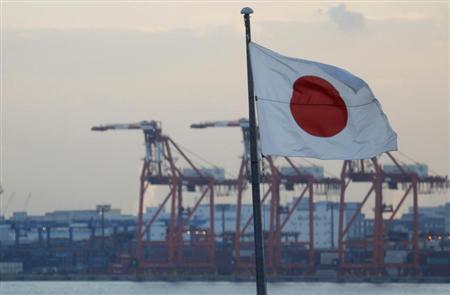Japan’s export control system is very complicated. It is not a simple set of laws and regulations but instead is a complex mix of primary and secondary legislation. It is this process that has led to confusion for exporters when navigating the complexities of these controls.
To demonstrate how complex the requirements are, below is a high-level overview of Japan’s export control system.
Laws and regulations that control export
According to the law, all goods for export are required to obtain export permission by Japanese Customs prior to exportation. If a good to be exported is subject to other laws and regulations that require license or approval, the exporter should obtain license or approval in advance, and provide proof of this approval at time of export declaration.
The laws that restrict exports fall into two categories:
- Trade related laws:
Foreign Exchange and Foreign Trade Act
Export and Import Transaction Act
- Other laws:
e.g. Plant Protection Act
Act on Domestic Animal Infectious Diseases Control
(Other laws are listed below)
License and approval by Foreign Exchange and Foreign Trade Act
Article 48 of the Foreign Exchange and Foreign Trade Act stipulates that export license and approval shall be specified by Cabinet Order. This Cabinet Order is the “Export Trade Control Order” that specifies the types of goods subject to export license requirements and approval by the Minister of Economy, Trade and Industry (METI).
Goods subject to export license or approval under the Foreign Exchange and Foreign Trade Act include:
- License (Appended Table 1): Strategic Goods that are considered to obstruct the maintenance of international peace and security
- Approval (Appended Table 2): Specified goods; specified regions, processing trade deal
Export License
The goods required to obtain a license by the METI are listed as item 1 to 16 in the Appended Table 1 of the Export Trade Control Order. Goods listed in Table 1 are considered to obstruct the preservation of international peace and security [1].
There are two types of controls:
Export licenses under the category list control, requires exporters to apply for a license when exporting or transferring the listed items to a foreign country.
Export licenses under the category catch-all control, requires the same when the items being exported will be used for certain applications related to Weapons of Mass Destruction (WMD) or conventional arms. Under catch-all control, exporters must obtain a license if: 1) they are aware that the item will be used for the development, manufacture, use or storage of WMD or 2) they are informed by METI that there is a considerable risk and the item in question will be used for the development, manufacture, use, or storage of WMD.
The catch-all control is not applied to exports destined for the following 27 countries that have high level export control systems and are members of international treaties and regimes restricting WMD: Argentina, Australia, Austria, Belgium, Bulgaria, Canada, the Czech Republic, Denmark, Finland, France, Germany, Greece, Hungary, Ireland, Italy, Republic of Korea, Luxemburg, the Netherlands, New Zealand, Norway, Poland, Portugal, Spain, Sweden, Switzerland, the U.K., or the U.S.
Export Approval
There are two areas that require export approval:
- Goods listed in the Appended Table 2 of Export Trade Control Order
- To ensure domestic supply; e.g. eels (fry for fish culture)
- To maintain an orderly market; e.g. vessels equipped with fish catching equipment or machines
- Under international treaties; e.g. animals and plants specified by Washington Convention, frozen baby clams
- Restricted items; e.g. narcotics, counterfeit currencies, goods that may infringe patent rights
- Goods under a contract for processing
Raw materials to be used for processing work under a contract [4], falling under the scope of ‘Designated Processing Works’, which are specified by METI.
Leather products re-importing to Japan (shoes, bags, wallets, leather clothes, fur products, etc.) that have been processed overseas after exporting as materials (raw leather, tanned leather, finishing leather, etc.) from Japan require approval from METI.
The goods under contract for processing are not subject to this rule, or approval before export, if the goods are less than 1 million yen of the contract price.
License required and approval by other laws related to exports
Act on Protection of Cultural Properties; e.g. important cultural properties or art treasures, natural monuments, important tangible folk cultural properties
Protection and Control of Wild Birds and Mammals and Hunting Management Law; e.g. wild birds and mammals and its processing goods, eggs of birds
Narcotics and Psychotropic Control Act; e.g. narcotics, psychotropics, materials of narcotics and psychotropics
Cannabis Control Act; e.g. cannabis, products made from cannabis
Opium Control Act; e.g. opium, opium poppy
Stimulants Control Act; e.g. stimulants, materials of stimulants
Rabies Prevention Act; e.g. dogs, cats, racoons, fox, skunk
Act on Domestic Animal Infectious Diseases Control; e.g. cloven-footed animals, horses, chickens, duck, rabbits, honey-bees
Plant Protection Act; e.g. plants (flower plants, pteridophytes or bryophytes (including their parts, seeds, fruits and processed goods such as straw mat or straw bale or other similar products)), injurious plant, injurious animal (insect, mite)
Road Transport Vehicle Act; e.g. used cars
Today many companies interact with foreign governments and companies, as they expand their business activities across borders. The Japanese Export Control system is quite complicated. Like most countries, to comply with the many international schemes and regulations, exporters need to understand the requirements when navigating through the complexities. Knowing the country’s rules might not be sufficient enough without a good self-management program that addresses export controls; though having a good base understanding is the first step when setting up an export controls program.
[1] Item 1-4: Weapons and WMD: e.g. military vessels, nuclear fuels; Item 5-14: Strategic goods (e.g. metallic magnetic materials, numerically-controlled coordinate measuring equipment, semiconductor substrates, telecommunication optical fibers, communication cable systems capable, gyroscopes, underwater robots); Item 15: Sensitive goods (e.g. communication jamming equipment, Information security equipment); Item 16: WMD related goods except for food and timbers
[2] When the items to be exported are either on Attachment List No. 1 to the Export Trade Control Order (goods), the exporter should apply for an export license to METI.
[3] When the exporter is “informed” by METI, or “knows” that the end-use or end-user of the items to be exported is related to the development, manufacture, use, or storage of WMD, or conventional weapons, the exporter should apply for an export license to METI.
[4] Contracts that engages exporting materials on condition that 1) a consignee outside Japan manufactures (processes) on a commission basis and 2) the products after processing will be reimported in Japan.
References:
Export Trade Control Order in English
Japan Customs – Export Procedures
CISTEC (Center for Information on Security Trade Control)






